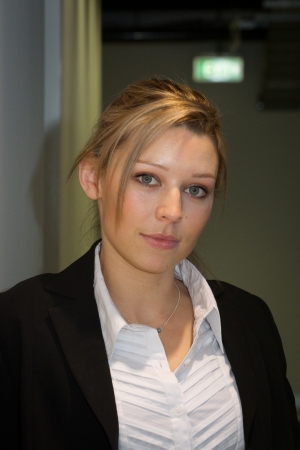'Just Shut Up?': Speech Limitations, Social Media and Women's Rights
Research news
23 October 2012
Geelong Advertiser columnist and ADRI Researcher, Dr Perri Campbell, investigates the impact of social media on the Jill Meagher case.
'There is a belief that is alarmingly wide-spread that you can say what you want on the internet without any consequences, and while I'm an advocate for freedom of expression, I know that's absolutely not the case' (Julie Posetti).
The case of murdered Melbourne woman Jill Meagher has received unprecedented media attention. Many people became aware of her story and were traumatised by its tragic end. In the wake of Jill's death some people turned to social media to express their grief and anger, but after being told their comments could affect the trial people faced the question of what they could and should say online.
With the accused awaiting trial, police expressed concerns that online comments and responses could have a negative effect on the legal proceedings and requested that social media users stop posting comments. Julie Posetti (University of Canberra) warns: 'we all are very familiar with the term trial by media and it's a real problem. It would be awful to think about the potential consequences including an incapacity to prosecute somebody because of trial by social media'. Not to mention it is a 'criminal offence to publish content that is likely to prejudice a trial and interfere with the court of justice' (Rick Sarre, University of South Australia). Sarre suggests 'everyone should just shut up on twitter'.
The problem for Sarre is not that people have expressed their feelings, rather that some have posted defamatory comments and attempted to reconstruct the alleged perpetrator's history - things which could amount to trial by social media. In a society where we are encouraged to speak out and voice our opinions many have taken the opportunity to call for justice online.
There are a number of important issues connected to this case. For one, it brings to our attention the power and potential of social media. People have been so dramatically affected by the case (as evidenced by the Sydney road peace march) that social media acted as a therapeutic space, a way of connecting with concerned others. But it also raises questions about how people should govern themselves online when there are real consequences for their behaviour offline.
Given all the limitations placed around discussing Jill Meagher's case - on and offline - the incentive or suggestion has been to stay quiet or if you're not sure what to say don't say anything. But the silence can become deafening. Like many other women I have grappled with the issue of women's right to safety and freedom of movement in the streets. Surely this is right we can demand and be noisy about. The difficult part in all of this is not to confuse the right of women to discuss and demand a right to safety – with the very real need for justice to be done (and seen to be done) through official channels.
In taking justice into their own hands – on or offline – and assuming or pronouncing guilt outside the right to a free and fair trial, individuals and groups pose problems for what we understand as democracy, especially in digital spaces where groups are easy to mobilise and develop in an accelerated fashion.
Share this story
 Dr Perri Campbell
Dr Perri Campbell
